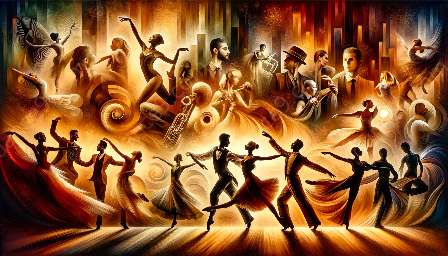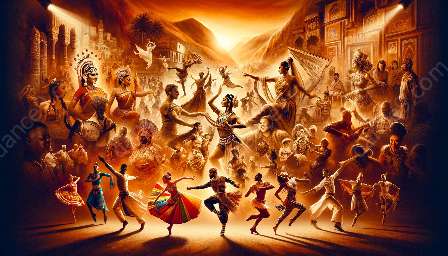Dance terminology plays a significant role in shaping the psychological well-being of dancers. The language used in dance can influence the perception of self, identity, and skill levels. It is important to understand the impact of language on dancers' mental health and self-esteem.
How Dance Terminology Shapes Self-Perception
The way dance movements and techniques are described can have a profound impact on how dancers perceive themselves. Positive and empowering language can boost dancers' confidence, while negative or derogatory terms may contribute to feelings of inadequacy and self-doubt. For example, using terms such as 'graceful' or 'strong' can instill a positive self-image, whereas terms like 'awkward' or 'weak' can have the opposite effect.
Language and Identity
Dance terminology also influences dancers' sense of identity within their art form. The language used to describe different dance styles and techniques can impact how dancers view themselves within the dance community. Additionally, terminology related to body image and form can affect dancers' self-perception and body image. Understanding how language affects identity can help in creating a more inclusive and supportive dance environment.
Impact on Self-Esteem
The use of positive and supportive language in dance instruction can contribute to the development of healthy self-esteem among dancers. Conversely, harsh or overly critical terminology can erode confidence and lead to performance anxiety and mental health issues. Recognizing the impact of dance terminology on self-esteem is vital in promoting a positive and nurturing environment for dancers.
Empowering Language and Mental Well-Being
By acknowledging the psychological impact of dance terminology, dance educators and practitioners can adopt more empowering and affirming language. This can contribute to the mental well-being of dancers, fostering a more positive and inclusive dance culture. Encouraging language that uplifts and motivates dancers can lead to greater self-confidence, improved mental health, and overall well-being.











































